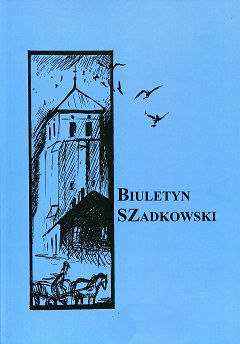ZALESIANIE GRUNTÓW ROLNYCH I NIEUŻYTKÓW W GMINIE SZADEK W LATACH 1995–2015
AFFORESTATION OF AGRICULTURAL FIELDS AND WASTELANDS IN THE COMMUNE OF SZADEK IN YEARS 1995–2015
Author(s): Beata Woziwoda, Sylwester Lisek, Katarzyna AmbrożkiewiczSubject(s): Agriculture, Economic history, Political history, Recent History (1900 till today), Human Ecology, Rural and urban sociology, Economic development, Environmental interactions, EU-Approach / EU-Accession / EU-Development
Published by: Wydawnictwo Uniwersytetu Łódzkiego
Keywords: state forests; private forests; Rural Development Programme; landscape management;
Summary/Abstract: The increase in forest cover and the reduction in agricultural land area has become a common feature of the contemporary landscape in Poland. This article presents an overview of the trends of farmland afforestation in the Commune of Szadek in the last two decades. The economic factors that shaped the process of farmland to woodland transformation are presented. The results show that the forest land area has increased in the last 20 years. In general, around 300 ha of arable land and wasteland were afforested in the years 1995–2015, of which 172 ha belonged to owners from the private sector. However, in the last decade there were only 27 ha of private lands converted to woodlands. Since Poland’s accession to the EU in 2004, the afforestation of arable lands has been financially supported by the European Agricultural Fund for Rural Development (EAFRD) within the Rural Development Programme (RDP) in accordance with the principles of the European Common Agricultural Policy (CAP). The financial support of afforestation programme in the Commune of Szadek amounts over 800 thousands zloty per 23,75 ha of woodlands (data of Agency for Restructuring and Modernisation of Agriculture). The scale and rate of farmland afforestation depended on the available financial measures and sufficiently clear rules for afforestation programmes within RDP. However, the negative economic experiences arising from the instability of the contemporary Polish and European economies and rules, curbs the process of economically (afforestation of land unsuitable for agricultural use) and/or ecologically (forest restoration within a deforested landscape) justified afforestation of poor agricultural lands and wastelands.
Journal: Biuletyn Szadkowski
- Issue Year: 2016
- Issue No: 16
- Page Range: 349-361
- Page Count: 13
- Language: Polish

